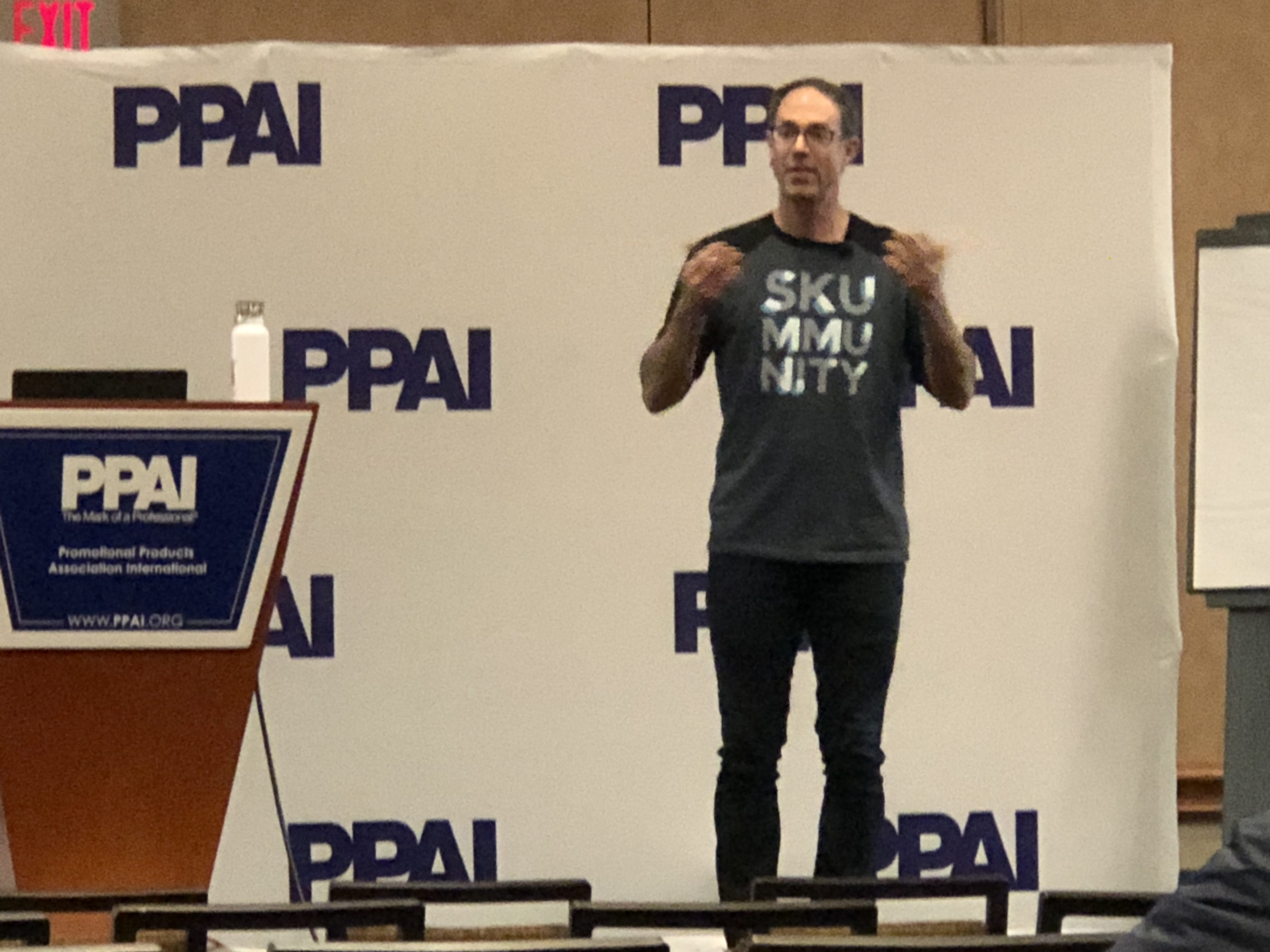Welcome to Vegas! All week long, Promo Marketing will be reporting live from the PPAI Expo 2019 at the Mandalay Bay Convention Center. If you’re at the show, stop by booth 3237 and say hello. If not, keep an eye on our newsletter for product information, session wrap-ups and a whole lot more, brought to you right from the show floor. Up now: Recapping Mark Graham’s education session, “Turning Customers Into Raving Fans.”
Obviously, business owners, principals or businesspeople in general want to create a loyal customer base. That’s how their businesses stay afloat. But, how do you go beyond that? How do you create a customer base that can’t get enough of your products or services—that wants to buy something they can get from others specifically from you because you provide that something extra or desired brand recognition?
That’s what Mark Graham, chief platform officer for commonsku, aimed to teach attendees at his education session “Turning Customers Into Raving Fans” at the PPAI Expo on Tuesday, Jan. 15.
Using examples from other self-built communities with loyal members, like the Grateful Dead, Phish, Red Bull, Soul Cycle and Dollar Shave Club, Graham gave distributors advice on how to create their own communities and, therefore, maximize profit and success.
“There is a straight line between what these brands do and what we can do in our promotional products companies,” Graham said. “When you have a great customer—the ones who are loyal, and you have great margins and feel like you’re investing in their lives—those are the customers you want.”
Graham called community-building the “new marketing” for 2019 and the future.

“The customer today is looking to be inspired, educated, connected to a higher cause and looking to work with companies that share their core value and beliefs,” he said.
For Graham, the key to creating a successful and active community is solving a need. Think about his examples: Dollar Shave Club provides convenient self-care products for men on a regular basis without the need to leave home. Red Bull provides entertainment as well as a product widely used by everyone from BMX riders to businesspeople staying late at the office. The Grateful Dead and Phish provide necessary jams and unpredictable setlists.
These are needs they saw in their target audiences, addressed and branded the heck out of. Red Bull athletes are always wearing Red Bull hats and apparel while they’re competing or in videos. Dollar Shave Club made some hilarious commercials and got in on the subscription box craze at the jump. And you likely know at least one person with a Grateful Dead bear T-shirt, if not a tattoo.
“On one hand, you build something that solves a problem,” Graham said. “If what you do, your service, doesn’t solve a problem for your customer, then you have to stop and do that. That’s the first thing. Plus, give your customers a platform to connect, be heard and be successful.”
Commonsku’s community is active online. Red Bull’s base is active by encouraging customers to share pictures and video on social media, as well as hosting events from action sports events to original giveaways.
Sure, there are other energy drinks. There are other companies that make razors. There are other gyms. And there are plenty of other jam bands. But people like what they like and want what they want. And once they have that preference, it’s tough to change their minds. That’s a good thing for those lucky enough to hold onto their business.
“That’s my definition in all of the experience I’ve had in building communities: Solve their problems, give your customers a platform to be hard,” Graham said. “That’s the foolproof way. Customers who emote vibes. Customers who have an emotional connection to the brand. Grateful Dead, Soul Cycle, Red Bull—those are emotional connections. They’ve got lots of competitors, but their tribes have these emotions that lead to this loyalty.”



